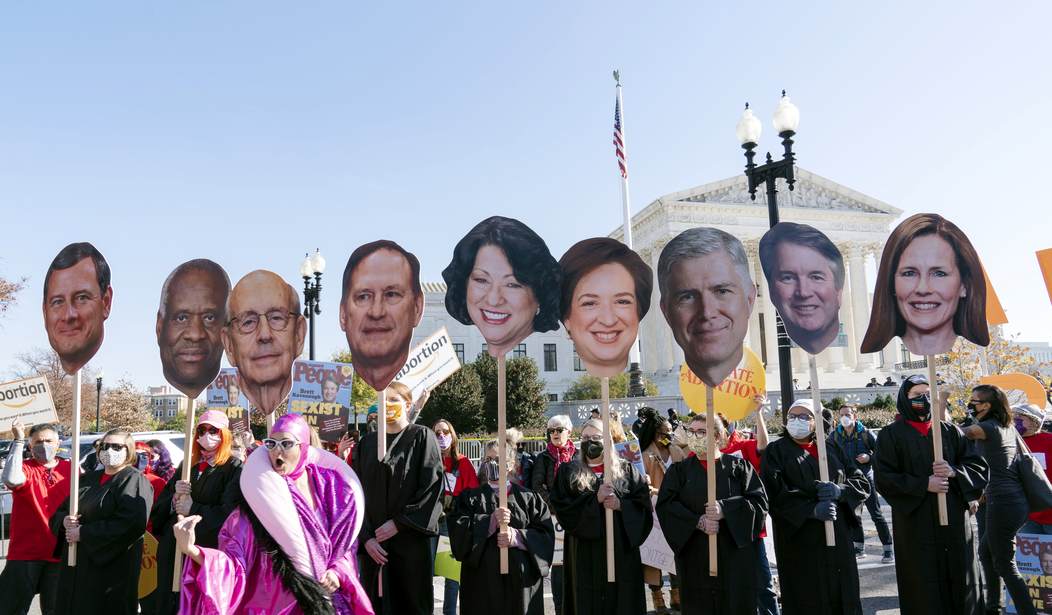The U.S. Supreme Court has not been too kind to abortion providers seeking relief from the Texas Heartbeat Act, which bans most abortion once a fetal heartbeat is detected, which is at about six weeks. On Thursday, the Court rejected a request from providers who were asking that the case be sent to a federal district court.
Abortion providers were asking that the case be sent to a federal district court, which had previously ruled against the law. As I reported in October, U.S. District Judge Robert Pitman, appointed by President Barack Obama, blocked enforced of the law with the strongest condemnation against it.
As John Kruzel reported for The Hill:
At issue is a procedural fight over which tier of the lower federal courts the case should return to after a divided Supreme Court ruled last month that abortion providers could contest the ban in federal court and list Texas state licensing officials as defendants.
Abortion providers had asked the Supreme Court to send the case back to a federal district court, where the judge presiding over their challenge had previously blocked the Texas law. But the justices instead returned the case to the conservative U.S. Court of Appeals for the 5th Circuit, which has allowed the ban to remain while the case proceeds.
The 5th Circuit has since added a new layer of litigation. In a 2-1 vote, the federal appeals court panel asked the top Texas state court to interpret the law, S.B. 8, and determine whether state licensing officials are appropriate defendants.
This legal mechanism, known as state certification, has at a minimum prolonged the litigation and, depending on how the Texas Supreme Court rules, could wind up erasing abortion providers’ narrow path to federal court.
As the certification process got underway, abortion providers went back to the Supreme Court to ask that the justices return their case to the federal trial court to avoid undue delay, a request the majority denied in Thursday’s order.
Recommended
Madeline had just earlier this week reported on the Court denying a motion from abortion providers.
"On Monday, the 5th Circuit transferred the case, Whole Woman’s Health v. Jackson, to the Texas Supreme Court. Previously, the case was heard at the United States Supreme Court. The Supreme Court returned the case back to the federal appeals court and did not grant abortion provider’s request to return the case to the district court, where an Obama-appointed judge previously ruled in their favor," she wrote.
It's worth noting that the order was unsigned but was along ideological lines of 6-3, meaning that even Chief Justice John Roberts, who had previously voted against the Texas abortion law in some cases, joined the other conservative members of the bench.
The law currently remains in effect and is likely to do so, something even abortion advocacy groups acknowledge.
#BREAKING: In our ongoing case against Texas’s abortion ban #SB8, the U.S. Supreme Court has denied a request to allow the case to proceed in district court after months of delay. The unconstitutional ban will likely stay in effect for the foreseeable future.
— Center for Reproductive Rights (@ReproRights) January 20, 2022
Such a ruling came on the eve of the 49th annual March for Life, when hundreds of thousands of pro-lifers from across the country march through our nation's capitol and to the Supreme Court to mark the solemn occasion around the time the Court handed down Roe v. Wade in 1973, which legalized abortion on demand in all 50 states.
The Court also heard oral arguments for Dobbs v. Jackson last month, a case that will decide the fate of a Mississippi law from 2018 that bans most abortions after 15 weeks. A decision is expected in June.

























Join the conversation as a VIP Member